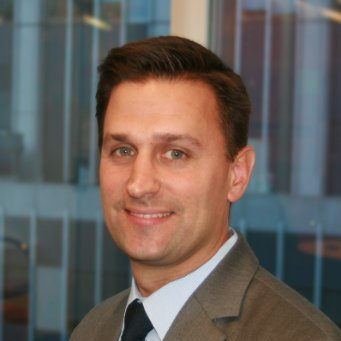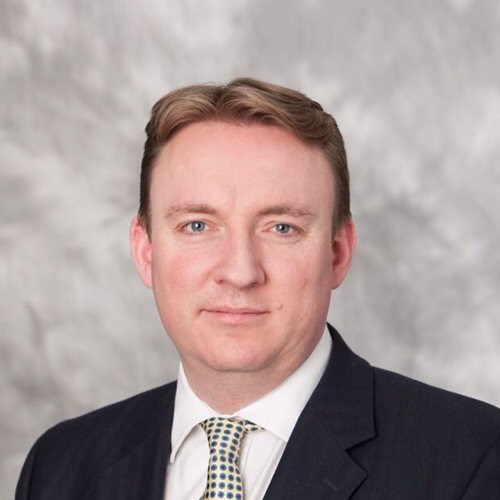UBS Global AM: “Now is A Great Time for US Growth Companies”
| For Alicia Miguel | 0 Comentarios

The markets may be nervous at the moment, plagued by issues like uncertainty in commodities and the structural changes faced by China, but there is no cause for concern around some assets, such as US equities, because the situation is a far cry from 2008. “There are weak spots in the market – the energy and industrials sectors, for example – but we are optimistic and we expect the situation to improve,” says Grant M. Bughman, manager of the US growth equity strategy at UBS Global AM.
At an investor presentation held last week in Madrid, he recognized that the S&P 500 companies have not seen earnings acceleration but highlighted areas where earnings growth has been remarkable.“Now is a great time for US growth companies because they have proven that they can grow in any environment.” Bughman especially likes growth stocks in the IT and healthcare sectors, which are currently overweight in the UBS USA Growth portfolio.
These are quality companies that can gain market share, have pricing power and are able to grow and generate revenues in any environment, even a tough one like the present time. Bughman hails the benefits of growth versus value companies, which include banking sector names and more cyclical stocks. “When it comes to investing in US equities in a lower-growth environment, growth companies work best,” he says. Growth companies are also inexpensive, with valuations currently below their historical 14-year average.
Fundamental strategy
The fund’s portfolio comprises 45 stocks selected through a fundamental research process, midway between concentration and diversification. Stocks are divided into three groups: classic growth companies (such as Nike or Home Depot, which the managers buy when the valuations are compelling); “elite growth” companies, that is, companies in a period of high growth (such as Facebook, a “secular winner” which will benefit from the shift from traditional to online and mobile advertising and which has featured in the fund’s portfolio since its IPO), and cyclical stocks which enjoy more opportunistic growth (such as Delta Airlines). The latter tend to make up around 10% of the portfolio but currently account for less, given the complex backdrop. Fast-growing companies, which have outperformed in recent years, also have a smaller slice of the portfolio at the moment, making room for increased exposure to classic growth stocks.
“The three groups of stocks complement each other in the portfolio, which is designed to perform well in any environment.” It does not include energy sector stocks, “not because we have an outlook on where crude prices are headed, but because the risk-return trade-off is not attractive at this point.” The fund manager, who points out that the collapse in energy prices has not led to increased consumer spending in the US – the fund is underweight the consumer sector – explains that the drop in oil prices stems from the excess supply, adding that some players will be forced out of the business and into bankruptcy, especially if current prices mean they can’t repay their debt. “No-one knows where commodities prices will go but we don’t see them trending upwards over the long term.”
Volatility creates opportunities
Despite the many challenges that lie ahead, Bughman believes that the best strategy in the current environment is to take advantage of volatility, which he says “creates opportunities to use our tools and rebalance portfolios, adding good names at more compelling prices,” especially if you take a long-term view. He believes the selloffs we are seeing in 2016 are indiscriminate and that there are opportunities to be found in stocks that are falling for no reason but fear alone.
When it comes to challenges like China, which will no longer be enjoying double-digit growth, Bughman points out that whilst the US is not an island its exposure through exports is smaller than countries like Japan and Germany. He refers to two US sectors: industrials, which is more closely linked to the emerging markets and will therefore underperform, and the services sector, which is more exposed to the domestic economy and is performing better as employment climbs, salaries improve and support aimed at boosting consumer spending gains momentum. He does add, however, that the upturn in consumer spending has only been observed among part of the US population and is not widespread. He is not worried, though, because household deleveraging and saving means healthier balance sheets, which may not lead to steep spending growth in the short term but will underpin a more robust improvement in the future.
Limited Fed action in 2016
With regard to the Fed, Bughman believes interest rates will stay low for longer and does not expect to see 4 rate hikes this year, as Fed previosly announced. “The Fed took the first step in December and unleashed volatility in equity and credit markets, driving up financing costs. The Fed has continually repeated the mantra that they will be data-dependent and given our generally positive view we see support for further future hikes, but not at the pace the Fed had anticipated to start the year,” he says, completely ruling out another hike in March. He believes rates could be raised as of June if the situation is more stable but expects Yellen to take a cautious stance in a deflationist environment. “The market is still underestimating how long interest rates will remain low. The path of rate hikes will be modest,” he adds.






